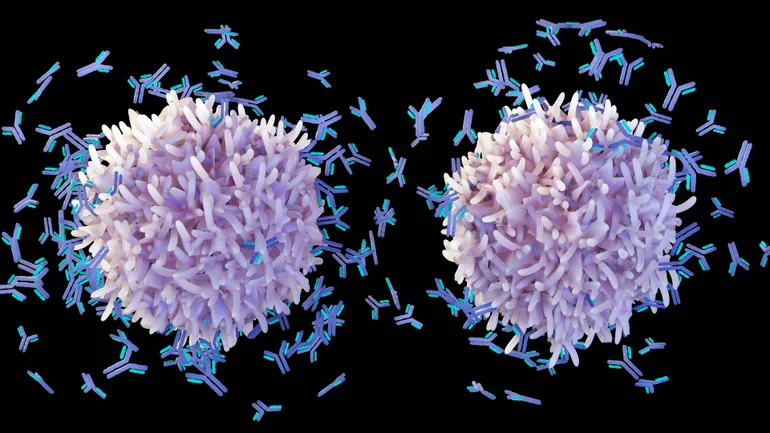Merck antibody reduces RSV-related disease, hospitalizations in trial


Dive Brief:
- An experimental antibody drug developed by Merck & Co. significantly reduced the incidence of disease due to respiratory syncytial virus infections as well as related hospitalizations in infants, the company said Thursday.
- Called clesrovimab, the antibody met all the goals of a Phase 2b/3 study testing it in more than 3,600 healthy pre- and full-term infants. A dose of clesrovimab lowered RSV disease incidence by 60%, and RSV-associated hospitalizations by 84%, compared to placebo through five months post-treatment.
- While three RSV vaccines are approved in the U.S. for older adults, only one antibody drug — Sanofi and AstraZeneca’s Beyfortus — is cleared for all infants entering their first RSV season. If approved, clesrovimab would compete with Beyfortus.
Dive Insight:
RSV is a significant public health concern for vulnerable populations, especially the elderly and newborns. Researchers estimate that nearly every child will be infected by the age of two. While infection typically only causes a mild, cold-like illness, it can be more serious and require hospitalization in some.
Like Beyfortus, clesrovimab is designed to work as “passive immunization.” Merck is testing it as a single-dose shot for healthy preterm infants, full-term and at-risk infants of any weight. Beyfortus, meanwhile, comes in different dose strengths depending on the weight of an infant.
In the Phase 2b/3 trial, healthy pre- or full-term infants from birth up to 1 year of age entering their first RSV season received either placebo or clesrovimab. Researchers then evaluated clesrovimab’s safety and efficacy through five and six months following treatment.
Merck had previously said the study succeeded and on Friday shared the more detailed data. Against endpoints measuring more severe disease, clesrovimab was around 90% effective versus placebo.
Rates of adverse events and serious adverse events were comparable between antibody and placebo groups in the Phase 2b/3 study, Merck said. There were no treatment- or RSV-related deaths in that trial.
The company also shared interim findings from a Phase 3 trial testing clesrovimab against an older antibody, Synagis, in infants at high risk of severe disease. Otherwise known as palivizumab, Synagis is cleared only for high-risk infants. In the study comparing Synagis and clesrovimab, the safety profile of the two drugs was comparable, according to Merck.
The company aims to secure U.S. approval and make clesrovimab available as early as the 2025-2026 RSV season.
This post has been syndicated from a third-party source. View the original article here.




